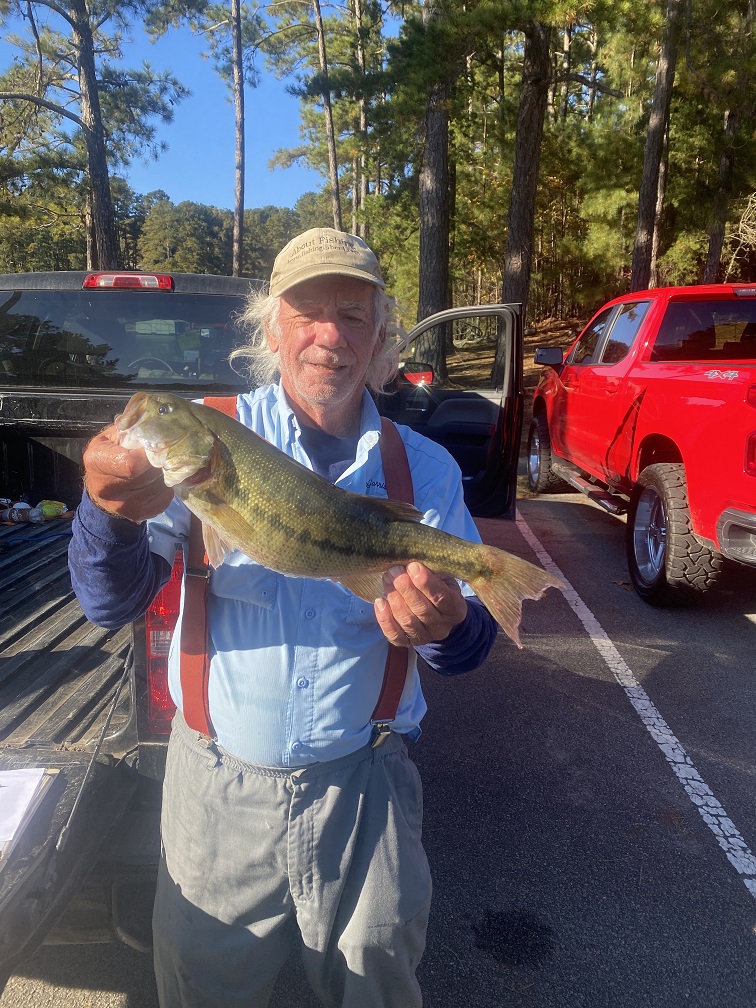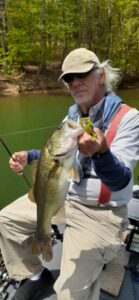Saturday, August 14 passed for me without much notice. That is quite a change from my pre-teen and teen years when opening day of squirrel season was arguably the most important day of the year for me.
From the time I killed my first squirrel at eight years old, I loved to hunt the furry tailed tree rats. That first squirrel was not exactly a hunting situation. I saw it grab a pecan from the tree in front of our house and run into the woods across Iron Hill Road.
I was not allowed to go out of the house with a gun unless an adult was with me at that age. Mama and daddy were not home but Gladys, the woman that worked on the farm, helped with housework and cooking and pretty much raised me as a second mother, was there.
I grabbed my Remington semiautomatic .22 rifle and told Gladys to come with me. She fussed but followed. As I entered the edge of the woods and went behind the hickory tree the squirrel went up with its pecan, I saw a flash as it went to the other side of the tree.
Gladys was still crossing the road, the squirrel saw her and did what squirrels do, went to the other side of the tree, giving me a good shot. I picked it up and followed Gladys back to the house.
Mama and daddy got home soon after that and fussed at me a little about taking the gun out with Gladys, I think daddy was disappointed he had not been the one, but both seemed proud. And daddy showed me how to skin and gut the squirrel, the first of hundreds I cleaned and ate. We had fried squirrel that night as a supplement to dinner.
Season started a lot later back then, in October as I remember, so weather was a lot cooler. And that made it more enjoyable to hunt, fewer mosquitoes, stinging critters with wings, and snakes slithering around. But I never really worried about anything when in pursuit of a squirrel with my .22 or .410. I loved that time in the woods.
Since mosquito bites have been bothering me so much I have been thinking about bug bites and other bug problems. One of the most horrifying that I have seen only once is the bot fly egg lay. I heard about wolves in squirrels but never saw one until season opened earlier and the weather had not cooled.
A bot fly lays its egg on the skin of a mammal. The egg hatches and the small worm burrows under the skin, where it lives and grows for several months, growing into a fat maggot about 1.5 cm long. They live between the skin and muscle, but do not hurt the animal host. But that big lump has gotta itch! And they grow under the skin for up to three months!
The squirrel I shot with a maggot, what we called “wolves,” had a small hole oozing puss on its back. When the skin was pulled off the wolf fell out. It was not attached in any way, just living between layers, and the meat under it was not damaged in any way.
The maggot does not eat the meat or the skin, it feeds on “dead skin cells, and other proteins and debris that fall off of skin when you have an inflammation – dead blood cells, things like that,” medical entomologist C. Roxanne Connelly from the University of Florida stated.
Although I knew the meat was good, I could not eat that squirrel. Just the though of the pus coming out of the hole and that ugly critter living there turned me off too much.
During season I hunted every Saturday and many weekday afternoons. Hunting was not legal back then on Sunday and I am sure my parents would not have let me go even if it was legal. But every other day of the week was open!
I often took one of my guns to Dearing Elementary School and left then in daddy’s office. He was principal but I was not the only one allowed to bring a gun and leave it there until the end of the day. I had a route from the school up a creek and around town back to my house that I could still hunt, moving fairly quickly, and be home by dark.
Saturdays were special. I usually left the house before daylight so I could be sitting under a big oak or hickory tree as it got light. After the early morning feeding period, I would still hunt, walking slowly trying to spot a squirrel before it spotted me.
I seldom came home during the day, eating some saltines and Vienna sausage or Ritz crackers and potted meat from my small pack and drinking branch water. Some days I would build a small fire and roast a squirrel or bird I had shot, but those feasts too up too much hunting time.
I learned a lot about still hunting, woods craft and patience while hunting squirrels that helped me when I started deer hunting. Staying still enough so a squirrel coming to its feeding tree first thing in the morning doesn’t spot you is easier than staying still enough that a deer does not spot you as it walks down a trail, but it is similar.
Waiting for the right shot on a squirrel helps train to make a better shot on a deer, and tree rats provide much better, more realistic targets than paper nailed to a post.
A deer provides more excitement, mainly because it is rarer to shoot one, but numbers of squirrels makes up for size. After all, you can kill almost as many squirrels each day as you can legally kill deer in a whole season.
Squirrel season is open until the end of February, don’t miss out on the thrill.
 Camping in November is an iffy proposition, as last week proved to me. I went to Don Carter State Park on Lake Lanier last Wednesday and came home Monday after fishing the Flint River Bass Club tournament on Sunday.
Camping in November is an iffy proposition, as last week proved to me. I went to Don Carter State Park on Lake Lanier last Wednesday and came home Monday after fishing the Flint River Bass Club tournament on Sunday.